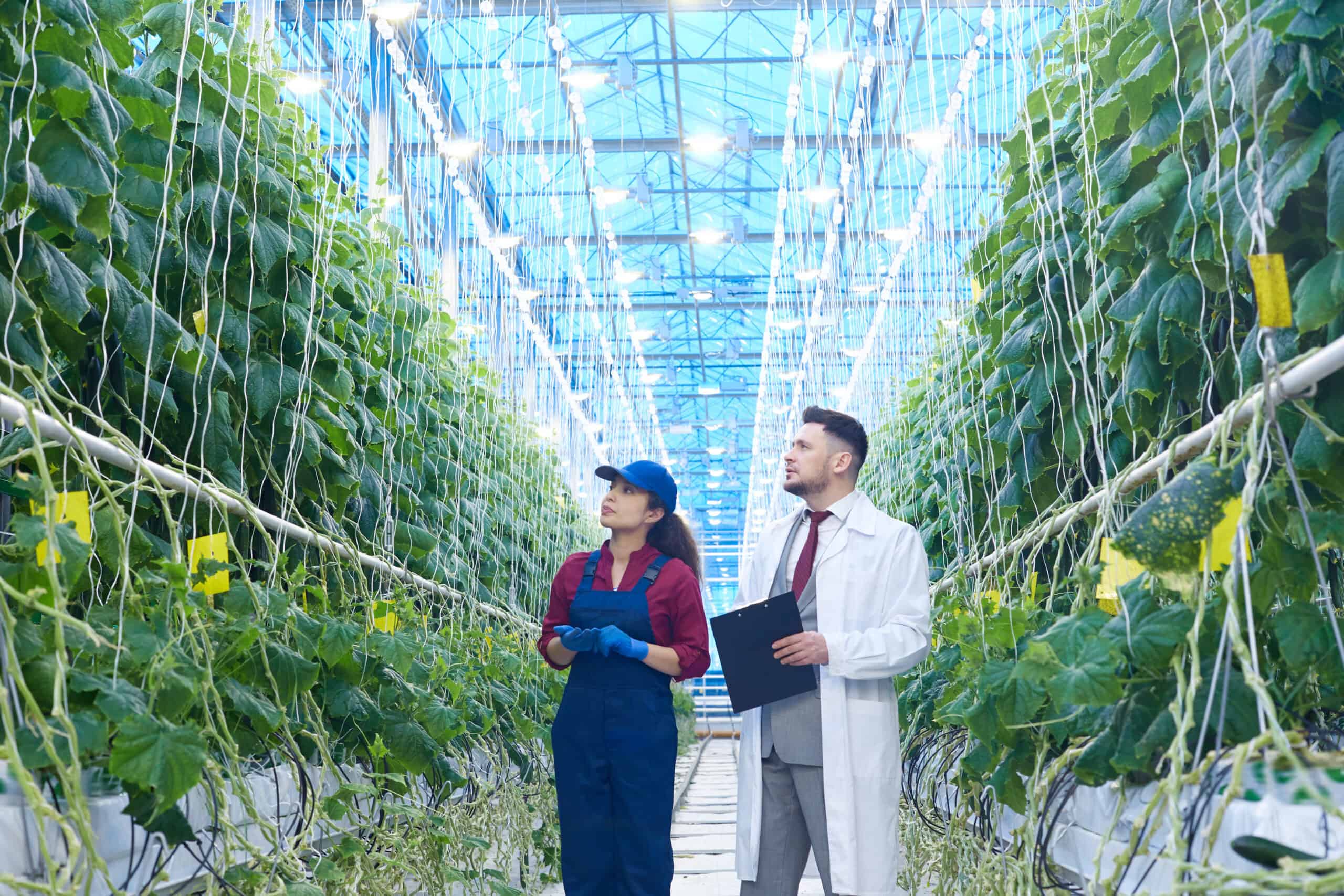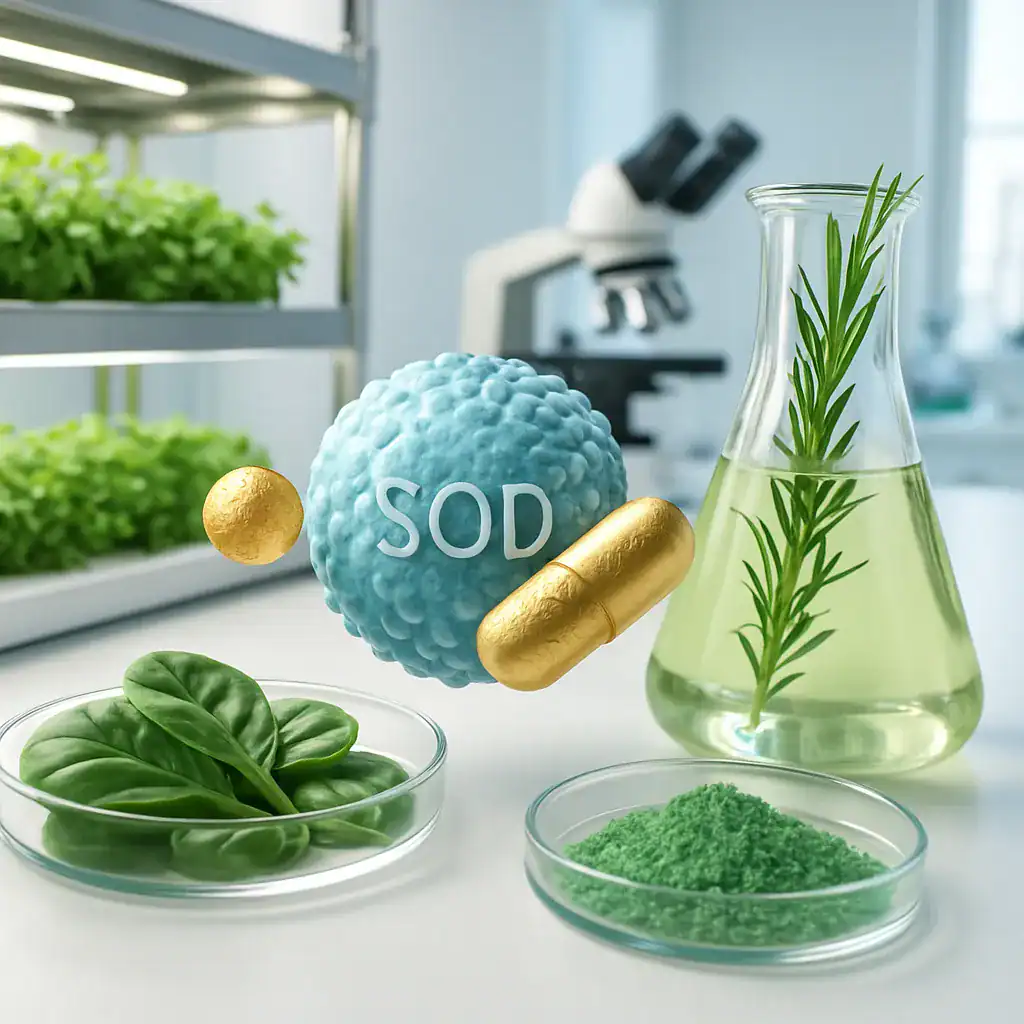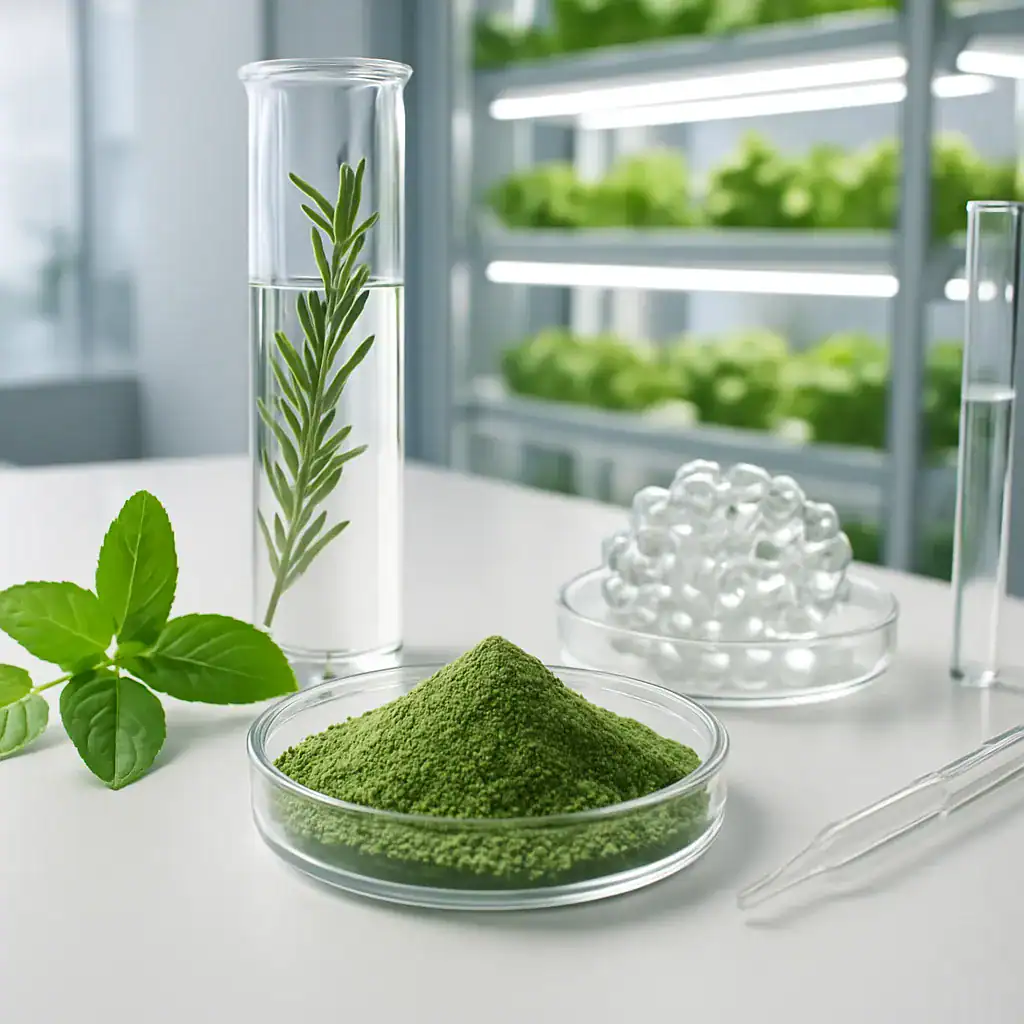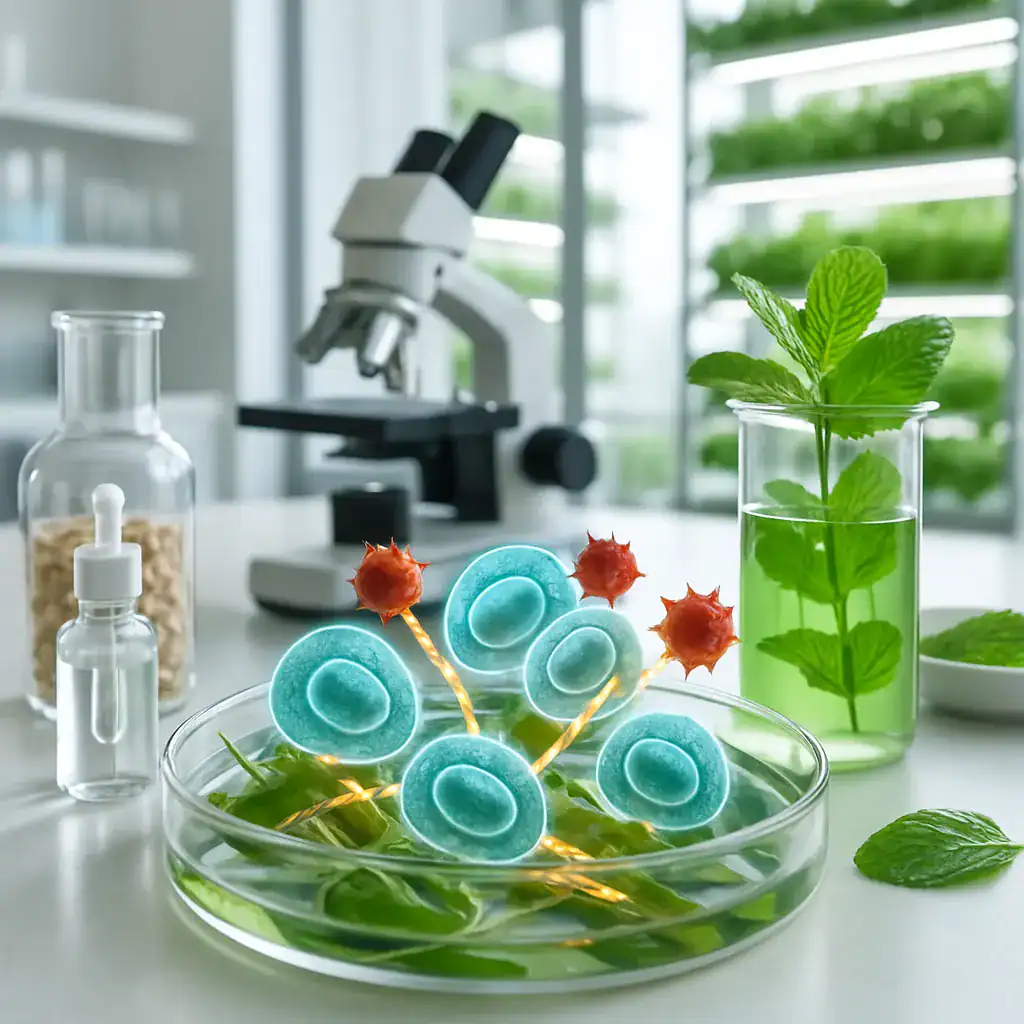From Soil to Solution: The Journey of Zero Residue Herbal Extracts
What Are Sustainable Supply Chains and Why Do They Matter?
Have you ever wondered how the supplements you recommend to clients make their way from nature to bottle? That’s where sustainable supply chains come in. But this isn’t just about moving products from point A to point B—it’s about creating responsible systems that benefit everyone involved.
Sustainable supply chains integrate environmental protection, social responsibility, and economic viability at every step of the production process. For companies like PhNóva, this means ensuring that botanical ingredients are ethically sourced, processed with minimal environmental impact, and delivered with maximum efficacy to the consumer.
You’ve likely seen the effects of broken supply chains—shortages, quality issues, or inconsistent products that your clients complain about. Sustainable supply chains address these problems while simultaneously reducing carbon footprints and supporting ethical labor practices.
But here’s something you might not have considered: sustainable supply chains actually enhance product efficacy. When nutraceutical ingredients maintain their integrity throughout the supply journey, the bioactive compounds retain their potency. That’s why PhNóva’s emphasis on natural extraction processes and high bioavailability isn’t just marketing—it’s the direct result of supply chain excellence.
Vertical Farming: Revolutionizing Botanical Supply Chains
The Traditional Supply Chain Challenge
Traditional botanical supply chains face numerous challenges—unpredictable weather patterns, seasonal availability, pesticide contamination, and lengthy transportation routes that degrade ingredient quality. That’s clear, but have you considered how these issues directly impact the effectiveness of the supplements you recommend?
When botanical ingredients travel thousands of miles before processing, their bioactive components begin degrading immediately after harvest. This means that by the time they reach your clients, many supplements contain significantly reduced potency compared to their label claims.
Controlled Environment Agriculture Solutions
PhNóva’s Vertical Farming Botanics approach represents a paradigm shift in nutraceutical supply chains. By growing medicinal plants in controlled environments, supply chain vulnerabilities are dramatically reduced. Plants are cultivated in optimal conditions year-round, without pesticides or environmental contaminants.
This controlled approach ensures consistent phytochemical profiles in every harvest—something impossible to guarantee with traditional agricultural methods. For nutritionists, this translates to more reliable clinical outcomes when recommending plant-based supplements.
The proximity of vertical farms to processing facilities also means that harvested botanicals can be processed within hours, not days or weeks. This immediacy preserves delicate compounds like enzymes and antioxidants that rapidly deteriorate after harvesting.
Nanodelivery Systems: The Final Mile in Sustainable Supply Chains
Bioavailability Challenges in Nutraceuticals
You’ve likely experienced this frustrating scenario: a supplement has impressive research backing its efficacy, but your clients report minimal results. Often, this disconnect stems from poor bioavailability—the active ingredients simply aren’t being absorbed effectively by the body.
Traditional delivery methods represent a significant weak link in the nutraceutical supply chain. Even the most sustainably sourced botanical extracts are worthless if they can’t reach their cellular targets.
Exosome Technology: Closing the Supply Chain Loop
PhNóva’s Exosomes-Nutra technology addresses this final critical stage in the sustainable supply chain. By utilizing plant-derived exosomes—natural nanocarriers that facilitate cellular uptake—PhNóva ensures that bioactive compounds actually reach their intended destinations within the body.
These plant-derived extracellular vesicles protect sensitive compounds from degradation in the digestive tract and enhance their absorption across intestinal barriers. For nutritionists, this represents a quantum leap in supplement efficacy, allowing for lower effective doses and reduced waste.
But have you considered the broader sustainability implications? Enhanced bioavailability means smaller doses are needed for therapeutic effects, reducing the agricultural footprint required to produce these botanicals in the first place. It’s a virtuous cycle that makes the entire supply chain more efficient and sustainable.
By integrating vertical farming with advanced nanodelivery systems, PhNóva has created a truly sustainable supply chain that maintains ingredient integrity from cultivation to cellular absorption—setting new benchmarks for the nutraceutical industry and providing nutritionists with more effective tools for supporting client health.
Our Key Areas of Expertise




The Ripple Effect: How Sustainable Supply Chains Transform Nutraceutical Efficacy
From Farm to Formula: The Interconnected Production Web
When you examine the journey of a bioactive compound from its source to your supplement bottle, you’ll discover a complex web of processes that directly influence both mental and physical health outcomes. Sustainable supply chains don’t exist in isolation—they fundamentally transform every aspect of nutraceutical production, creating a ripple effect that extends to clinical efficacy.
The traditional nutraceutical industry has long struggled with fragmented supply chains where raw material producers, processors, formulators, and distributors operate in silos. This disconnection leads to significant losses in potency, excessive waste, and environmental harm. By contrast, PhNóva’s integrated approach demonstrates how sustainability at each stage enhances the entire system.
Vertical Farming: Precision Agriculture Meets Nutritional Science
Vertical farming represents more than just efficient plant cultivation—it’s a revolution in how we think about botanical standardization. When medicinal plants are grown in controlled environments, several critical advantages emerge:
• Phytochemical consistency across batches, eliminating the variability that plagues traditional agricultural methods • Precise control over growing conditions to optimize specific compounds of interest • Year-round production that eliminates seasonal shortages • Reduced water consumption (up to 95% less than conventional farming) • Elimination of pesticides, herbicides, and fungicides that can compromise finished product safety
For superoxide dismutase (SOD)—nature’s powerful antioxidant enzyme—these benefits are particularly significant. Traditional SOD sources like melons require specific growing conditions and careful harvesting to preserve enzymatic activity. Through vertical farming techniques, PhNóva ensures that SOD maintains its powerful anti-inflammatory properties throughout the production process.
Exosome Technology: Bridging the Bioavailability Gap
You may have encountered products with impressive clinical research that somehow fail to deliver results for your clients. This frustrating reality often stems from bioavailability challenges that occur after consumption. Even the most sustainably produced ingredient can’t deliver benefits if it doesn’t reach its cellular target.
PhNóva’s exosome-based nanodelivery systems address this critical weak link by:
- Protecting sensitive compounds from degradation in the harsh digestive environment
- Facilitating transport across intestinal barriers
- Enhancing cellular uptake and targeting
- Reducing the effective dose needed to achieve therapeutic results
The direct connection to mental health becomes evident when considering compounds like adaptogens and neurotransmitter precursors that must cross the blood-brain barrier to be effective. Traditional delivery systems often fail at this crucial step, but plant-derived exosomes can navigate these biological barriers with remarkable efficiency.
The Sensory Experience: Why Palatability Matters for Compliance
Even the most sustainably produced, bioavailable nutraceutical will fail if consumers won’t take it consistently. This reality connects supply chain sustainability directly to PhNóva’s Aroma Neutra & Food technologies.
| Challenge | Traditional Approach | PhNóva’s Sustainable Solution |
|---|---|---|
| Bitter botanicals | Excessive sweeteners or flavoring agents | Natural masking compounds derived from sustainable sources |
| Strong odors from essential fatty acids | Enteric coating (adds synthetic materials) | Plant-derived odor neutralizers |
| Poor mouthfeel in functional beverages | Texture modifiers and stabilizers | Clean-label, naturally sourced texturizing agents |
When palatability improves, compliance rates increase dramatically—sometimes by 30-40%. This means that investments in sustainable ingredient sourcing actually deliver more health benefits because consumers actually take the products as directed.
Quality Control Integration: Data-Driven Sustainability
Modern sustainable supply chains leverage digital traceability systems that monitor critical quality parameters throughout production. For PhNóva, this means that each botanical extract carries a complete history:
• Growing conditions and harvest specifications • Processing parameters and extraction details • Bioactivity testing results • Stability data under various storage conditions
This information flow creates accountability at each stage while simultaneously identifying optimization opportunities. For ingredients like superoxide dismutase, where enzymatic activity can be compromised by improper handling, this tracking ensures that the final product delivers its promised anti-inflammatory benefits.
Packaging Innovation: The Final Sustainability Frontier
The most meticulously produced nutraceutical can still fail if packaging doesn’t protect sensitive compounds. Traditional packaging often prioritizes marketing appeal over functional protection, leading to degradation before products reach consumers.
PhNóva’s approach integrates sustainable packaging solutions that maintain ingredient integrity while reducing environmental impact:
• Oxygen-barrier materials that prevent oxidation of sensitive bioactives • UV-protective components that shield photosensitive compounds • Moisture control systems that maintain stability in varying environments • Bio-based packaging materials derived from renewable resources
For products containing compounds like SOD or other antioxidants, these packaging innovations ensure that the powerful anti-inflammatory benefits remain intact until the moment of consumption—completing the sustainable supply chain from farm to formula to function.
R&D Consultancy
Discover how PhNóva’s R&D Consultancy can help transform your idea into a market-ready solution — with expert support in formulation, regulatory compliance, and innovative delivery systems to give your product a competitive edge.
FAQ's about From Soil to Solution: The Journey of Zero Residue Herbal Extracts
Get in Touch with PhNóva
Have questions or need expert guidance? Contact us today — our team is ready to assist you with tailored solutions for your formulations.

30/03/2025






